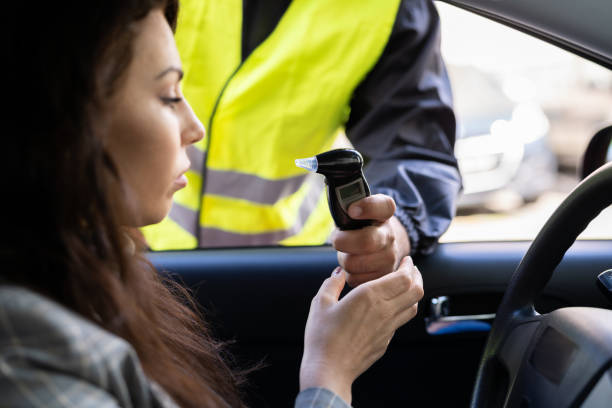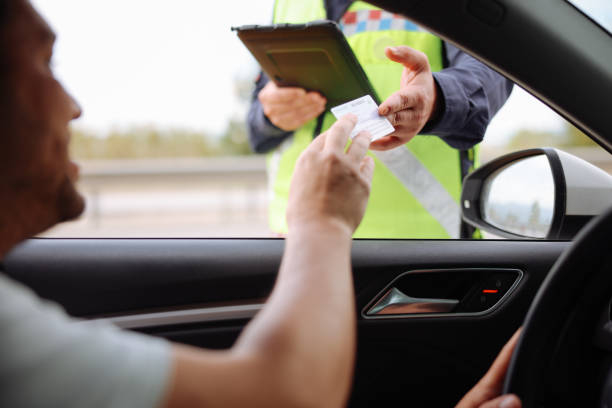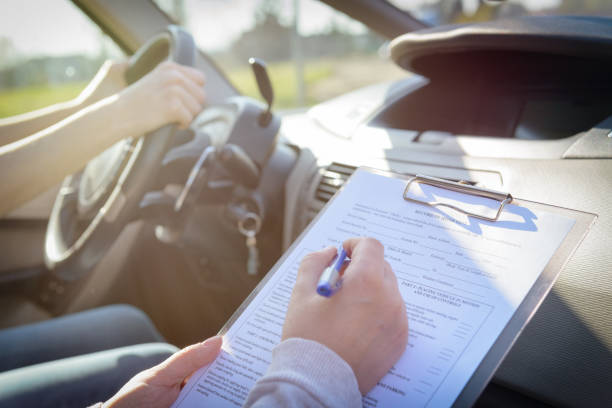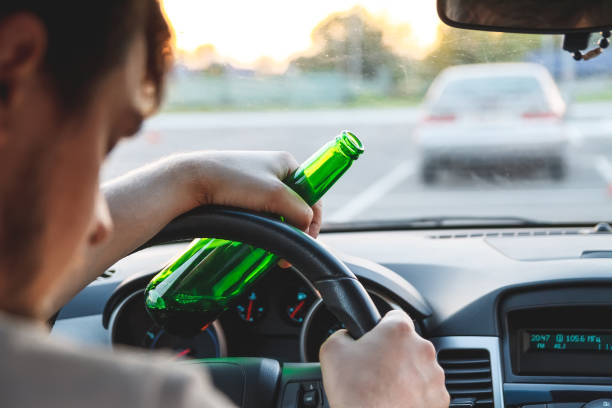Driving through Texas highways comes with a fair set of responsibilities. Among them is the obligation to follow the rules of the road. If you are pulled over on suspicion of driving while intoxicated (DWI), that responsibility becomes more serious. One of the questions that many Texans—or anyone driving in the state—might ask themselves is what happens if they refuse to take a breathalyzer test?
It might seem like a smart move to say no, especially if you’re concerned about what the results might show. However, Texas law doesn’t look kindly on that kind of refusal, and the penalties can come down hard. Refusing a breathalyzer test may feel like protecting your rights in the moment. However, it triggers a chain reaction that can create more problems than you expect. Before you decide what to do during a traffic stop, it’s critical to understand what your choices mean under Texas law.
Implied Consent in Texas: What You Already Agreed To

When you get a Texas driver’s license, you are automatically subject to what the state calls “implied consent” laws. In plain terms, this means that by driving on public roads, you’ve already agreed in advance to submit to chemical testing. This includes a breathalyzer, if a law enforcement officer has reason to believe you’re intoxicated.
That agreement doesn’t just sit there silently. If an officer pulls you over and suspects you’ve been drinking or using drugs, they can request a breathalyzer or other chemical test. Your refusal doesn’t erase the agreement; it just shifts the situation into a new legal category—one that brings penalties whether or not you were actually intoxicated.
The state sees refusal not just as noncooperation, but as a violation of your implied legal agreement to comply with testing under certain conditions. And that violation sets off some consequences that are both immediate and long-lasting.
Immediate Consequences: License Suspension on the Spot
The first major consequence you’ll face if you refuse a breathalyzer in Texas is the automatic suspension of your driver’s license. The moment you say no, the officer will inform you, often with a written notice, that your license is being suspended. This is done under the state’s Administrative License Revocation (ALR) program.
This suspension doesn’t wait for a court date. It’s triggered immediately and is based solely on your refusal. The officer will take your license, and you’ll be given a temporary driving permit valid for 40 days. After that, unless you successfully challenge the suspension, your driving privileges will be put on hold for a significant period.
Length of Suspension
For a first-time refusal, the suspension typically lasts 180 days. If you have previously refused a chemical test or have prior DWI-related issues on your record, the suspension can stretch to two years. The Department of Public Safety keeps track of these incidents, and they use your driving history to determine how severe the suspension will be.
This penalty applies even if you are not convicted of DWI. The act of refusal itself is enough. Many drivers are shocked to find that their license is suspended even when no formal criminal charges were pursued. In the eyes of Texas law, your refusal is a separate offense entirely.

Can You Fight the Suspension?
You do have the right to contest the license suspension, but the window to act is small. From the moment you’re notified of the suspension, you have just 15 days to request a hearing. If you miss that window, your license will automatically be suspended on the 40th day after your refusal.
At the hearing, the court will consider a few critical questions: Did the officer have a legal reason to stop you? Was there probable cause to believe you were intoxicated? Were you properly informed of the consequences of refusal? If the state can prove these elements, the suspension will be upheld. If not, your license may be reinstated.
Even though it’s an administrative process rather than a full criminal trial, the hearing can make or break your ability to drive shortly. Many people find it helpful to work with an attorney during this phase. This is because the stakes are high and the rules are unforgiving.
Refusal Doesn’t Guarantee You Avoid a DWI Charge
Some drivers think that by refusing a breathalyzer, they reduce the likelihood of a DWI conviction. That’s not always the case. Refusing the test can make things worse for your criminal case, depending on the circumstances.
Texas prosecutors can—and often do—use your refusal as evidence of guilt in a DWI trial. The argument goes something like this: if you weren’t intoxicated, why did you refuse the test? That line of thinking can sway a jury and make it more difficult for your defense team to argue that you were sober or cooperative.
Moreover, refusal doesn’t always mean that no evidence of intoxication exists. Officers can still testify about your behavior—bloodshot eyes, slurred speech, the smell of alcohol, unsteady movements, or failure during field sobriety tests. In some cases, they may even obtain a warrant to conduct a blood test. This can be more accurate and more incriminating than a breathalyzer result.
Warrants for Blood Tests
Texas law allows officers to request a search warrant if they have probable cause and you refuse a breathalyzer. If the judge grants the warrant, the officer can take you to a hospital or clinic and compel you to submit to a blood draw. This is particularly common when accidents occur, or when the driver has a prior DWI history or a child passenger.
So, while refusing the test may buy you a moment of delay, it rarely stops the legal process. It may even backfire if a blood test eventually confirms intoxication at levels above the legal limit.
Long-Term Consequences: Insurance, Driving, and Reputation
Even beyond the license suspension and potential DWI charge, refusing a breathalyzer can follow you for years. For starters, once your license is suspended, reinstating it isn’t as simple as waiting out the suspension period. You’ll likely have to pay a reinstatement fee, complete an alcohol education program, and obtain high-risk auto insurance, commonly known as SR-22 insurance.
SR-22 coverage is costly, and you’re required to maintain it for at least two years. Insurance companies see you as a higher risk, which means your premiums will rise dramatically. This financial burden adds up quickly, often costing more than any fines you might receive from a DWI conviction itself.
There’s also the matter of reputation. A DWI arrest—even without a conviction—can show up in background checks and affect your job prospects, professional licenses, and personal relationships. Refusing the breathalyzer may not shield you from those consequences; it may simply change the shape of them.
Should You Ever Refuse a Breathalyzer?
There’s no one-size-fits-all answer to this question, but most criminal defense attorneys will tell you that refusing a breathalyzer test in Texas carries significant risks. You don’t avoid arrest by refusing the test, and you don’t automatically protect yourself from conviction. Instead, you trade one set of potential problems for another.
There are situations in which refusal may be part of a broader legal strategy, especially if there’s a strong chance the test result would have been exceptionally damaging. But this is a calculation best made with legal advice and with full knowledge of the consequences. On your own, at the side of the road, the decision to refuse often creates more harm than good.
If you’ve already refused and are dealing with the fallout, acting quickly is essential. Get legal help, request your ALR hearing within the 15-day deadline, and begin preparing a strategy for both the administrative and criminal sides of your case.

Conclusion: Refusal Isn’t a Free Pass
Refusing a breathalyzer test in Texas may seem like a small act of defiance or a smart legal move. However, in practice, it creates a complicated legal battle that can affect every part of your life. From automatic license suspension and insurance hikes to potential DWI charges and court appearances, the consequences of that one decision linger far beyond the moment of refusal.
Texas takes intoxicated driving seriously, and the legal system is structured to discourage refusal at every turn. While you have the right to decline the test, you’ll need to be prepared for what follows. Understanding the legal terrain ahead of time can help you make better decisions, whether you’re behind the wheel or facing the courtroom.




